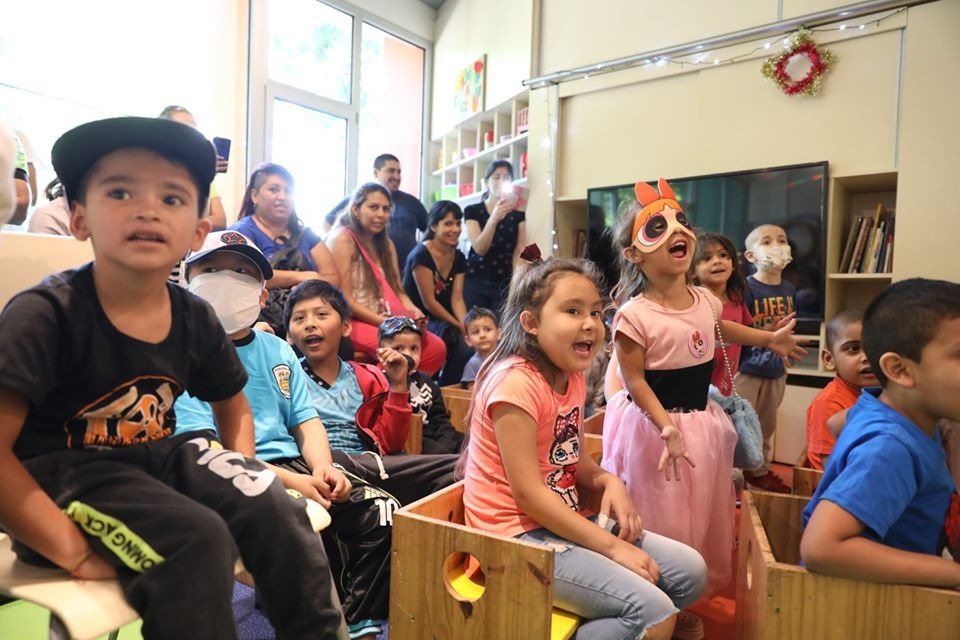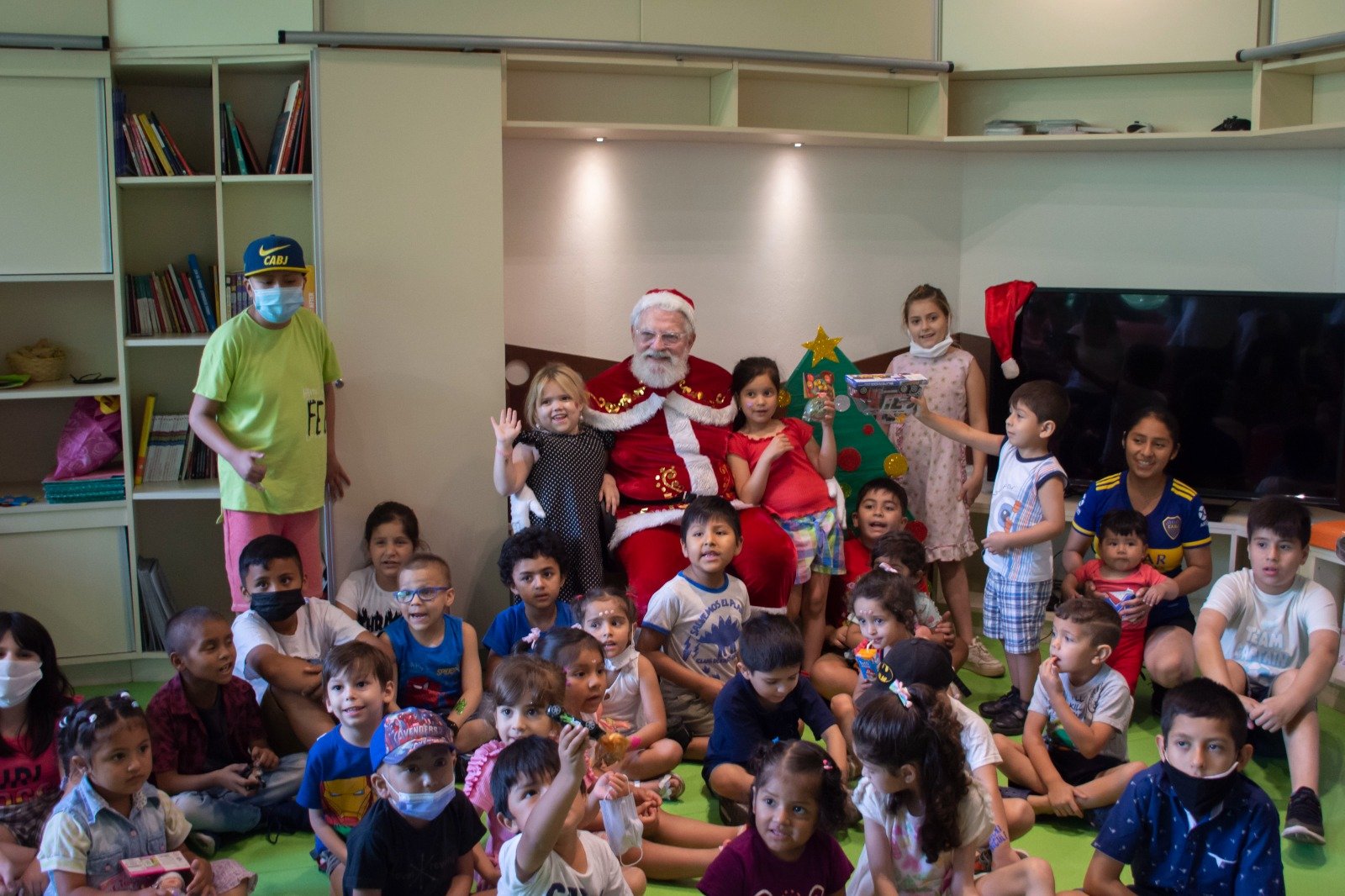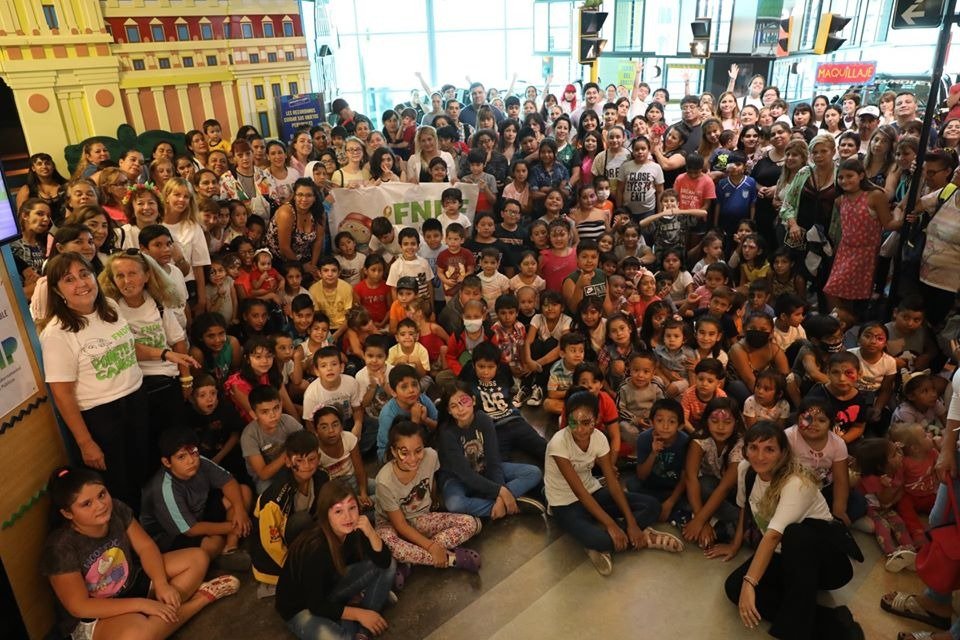Edith Grynszpancholc, President of the Natalí Dafne Flexer Foundation: “The challenge is that beyond the availability of treatments, patients have timely access to diagnosis and treatment.”
We continue highlighting the work and stories of CCI members worldwide. This month, we want to share this interview with Edith Grynszpancholc, President of the Natalí Dafne Flexer Foundation in Argentina, who tells us about the reality faced by childhood cancer patients and their families in her country and the work of the organization she leads to improve this children’s quality of life.
1. Edith, how was the foundation born? What inspired its creation?
When my daughter was sick, I had access to informative materials for all of us: the parents, the siblings, and the school. There was a lot of material explaining the disease, treatments, how to prevent complications, and tips to keep her as healthy as possible , including nutrition. This was so helpful for everyone that, after her passing, I decided to make it available for free in Spanish to all families in Argentina and Latin America. At that time, there was no information in Spanish for families, neither in Latin America nor in Spain. Today, we have 20 booklets that can be downloaded for free from our website.
Over time, and as a result of providing this material, we contacted patients and professionals and started incorporating services based on the needs we identified. Today, we assist over a thousand families every month, and have connections with all the professionals in our country, as well as with leading oncologists in other countries in the region.
2. What is the main goal of the foundation’s work?
The Natalí Dafne Flexer Foundation is a non-profit organization, established in 1994 in memory of my daughter. Its mission is to promote access to proper and timely treatment for children, adolescents, and young people with cancer and provide them and their families with the best conditions of support and care throughout the treatment and beyond. Currently, it has 9 strategically located branches throughout the country. In all of them, the Foundation assists 1,500 families per month free of charge, offering counseling and support to ensure that treatment can be carried out in a timely manner, psychological support, informative books, and recreational activities. It also promotes the development of pediatric oncology through support for research and training in pediatric oncology for professionals in Argentina and Latin America.
Within the Foundation's activities, my personal role is to identify opportunities for innovation following international trends in family support, psychosocial strategies, and new treatment guidelines. I emphasize Effective and Timely Access to treatment, analyzing the delays that occur in all healthcare subsystems throughout the country, and proposing processes to expedite access. We work on this, together with a whole network of adult cancer organizations.
3. What are the biggest challenges in terms of treatment for childhood cancer patients and their families in Argentina?
In Argentina, treatment for children and adolescents with cancer is available and 100% covered by various healthcare subsystems. However, the availability of treatments for all types of diagnoses is not uniform across the country. Nevertheless, there are efficiently established networks for patient referrals, both from a medical perspective and from the perspective of assistance organizations, with a network that has been in place for over 20 years. We also have a very active National Cancer Institute in the pediatric field.
The challenge is that, beyond the availability of treatments, patients have access to diagnosis and treatment in a timely manner. There are access barriers resulting in denials by some coverage providers and delays in drug provision at all levels.
On the other hand, for the most vulnerable population, the lack of coverage for support medication and transportation creates significant stress for families and a significant cost for our Foundation, which must provide these items.
4. How has the reception been from the families you've worked with?
Families and survivors show their sense of belonging by sharing their experiences with other patients, parents, and families in our networks. They say it's a way to thank the support they received from the Foundation. Other parents from remote areas of the country, who were supported by our Foundation when their child was receiving treatment in Buenos Aires, have started organizations in their hometowns with our ongoing guidance. Some of them are volunteers and even members of the Board of Directors.
5. In your opinion, what is needed at the national and regional level in Latin America to better support patients and their families?
In Argentina, although a Childhood Cancer Law was recently passed, it does not provide procedures and/or sanctions for non-compliance to improve access times to resources. Moreover, the law does not cover needs arising from the disease or treatment, nor does it cover special transportation. We work in collaboration with other organizations, taking these concerns to the authorities. We are collaborating to address this situation and bring it to the public agenda, as well as to promote access to new technologies and research, which are not included in the current law.
In Argentina, as in most Latin American countries, there are non profit organizations with different levels of development and intervention. Therefore, I consider it very important to create national networks that drive the necessary improvements. Many organizations actively participate in regional networks in Latin America but fail to collaborate with local organizations.
The work of Childhood Cancer Organizations should include families, professionals, and organizations. Some organizations do not take action on issues like access and medication quality because they don't consider it "their issue" or because such actions may put them at risk with their country's authorities.
Furthermore, I believe that NOTHING that affects families as a result of the disease should be outside our scope of action, because families trust us so much that they believe that "if something can be done," we will do it.
6. What would you say to families or parents whose child has just been diagnosed with cancer?
I would tell them that the treatment their child is receiving has been agreed upon in international working groups. I would advise them to trust their doctor and that they have the right to seek a second opinion if they wish. They should get in touch with the local Childhood Cancer Organization, which can be very helpful on the journey they are embarking on. They should turn to reliable sources of information from organizations that have been working in the field for many years and are considered experts. They can actively participate in the care of their child and provide a good quality of life, even during treatment. They should not forget that, despite being ill, their child is still a child.




